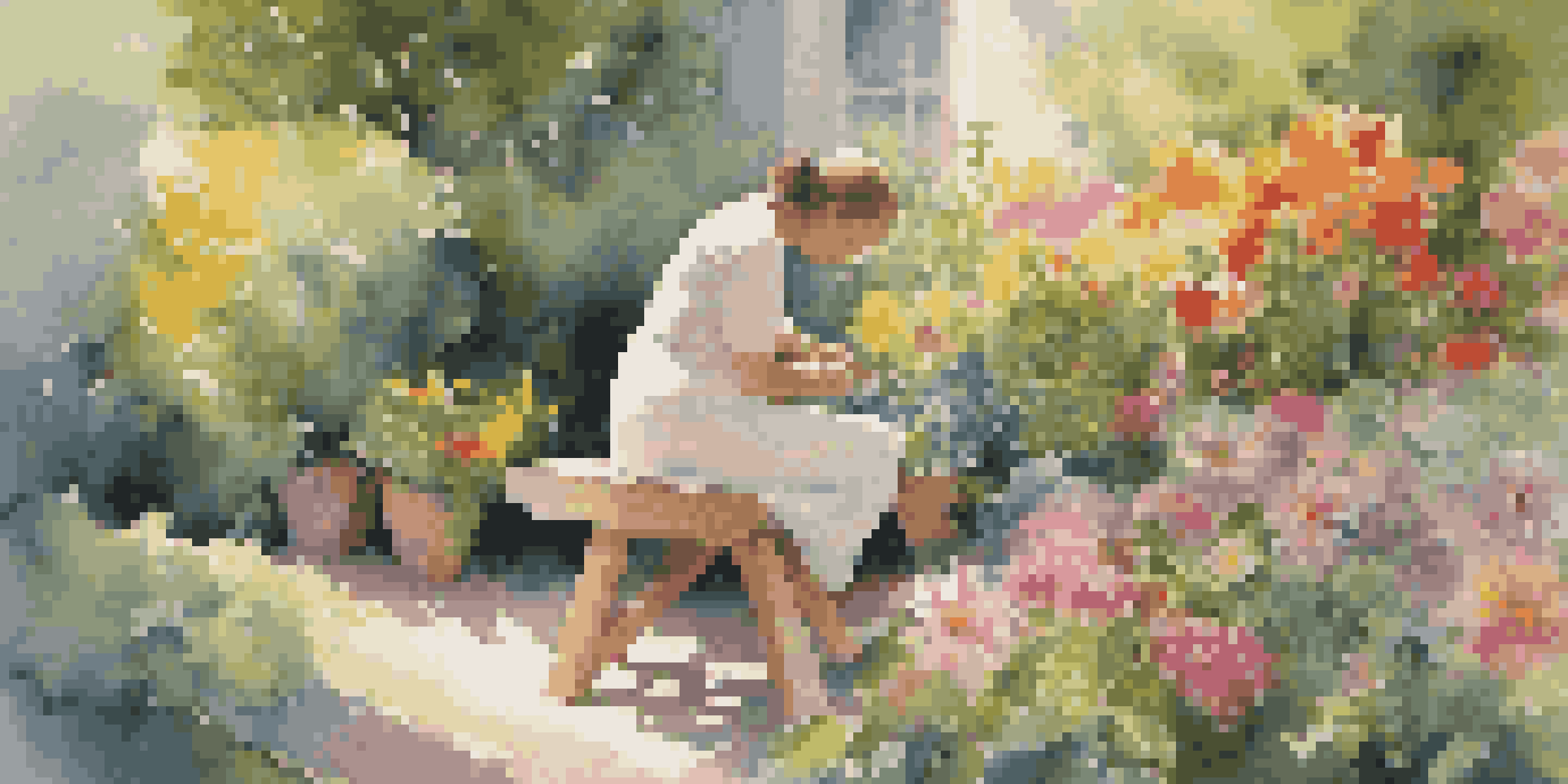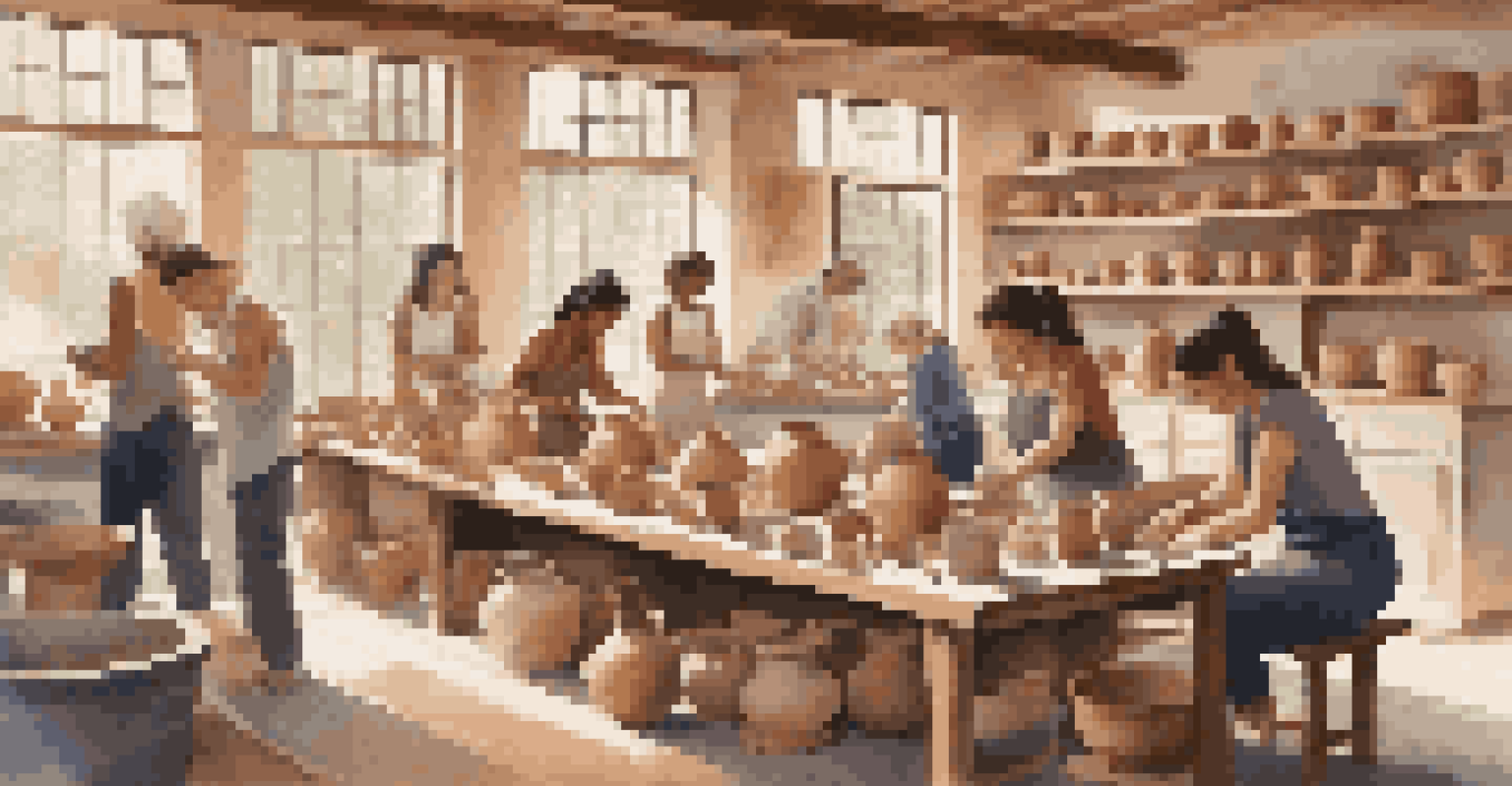The Connection Between Hobbies and Personal Fulfillment

Hobbies: A Gateway to Personal Fulfillment
Hobbies are more than just pastimes; they serve as a gateway to personal fulfillment. Engaging in activities we love can boost our mood and provide a sense of purpose. Whether it’s painting, gardening, or playing an instrument, hobbies can spark joy and creativity in our daily lives.
Hobbies are a great way to become the best version of yourself.
When we dedicate time to our interests, we experience a break from our routine, which can be refreshing. This break allows us to recharge and return to our responsibilities with renewed energy. It’s like taking a mini-vacation without leaving your home!
Moreover, pursuing hobbies can enhance our sense of identity. As we invest time in activities we’re passionate about, we often discover new aspects of ourselves, leading to greater self-awareness and satisfaction.
The Science Behind Hobbies and Happiness
Research has shown that engaging in hobbies can significantly increase happiness levels. Activities that we enjoy release dopamine, the neurotransmitter associated with pleasure and satisfaction. This scientific link explains why after a painting session or a game of tennis, we often feel a surge of happiness.

Moreover, hobbies provide an excellent outlet for stress relief. When we immerse ourselves in an enjoyable activity, it allows us to escape from daily pressures and worries. Think of it as a mental reset button that helps clear the clutter from our minds.
Hobbies Boost Happiness and Fulfillment
Engaging in hobbies not only enhances our mood but also provides a sense of purpose and personal satisfaction.
The joy derived from hobbies can also lead to improved mental health. Regularly engaging in these activities can decrease symptoms of anxiety and depression, acting as a natural mood booster.
Building Skills and Confidence Through Hobbies
Hobbies often involve learning new skills, which can be incredibly fulfilling. Whether it’s mastering a new recipe or learning to play the guitar, the process of acquiring skills adds a layer of achievement to our lives. This sense of accomplishment can significantly boost our self-esteem.
The more that you read, the more things you will know. The more that you learn, the more places you'll go.
As we tackle challenges in our hobbies, we develop resilience and problem-solving skills. For instance, if a painting doesn’t turn out as expected, we learn to adapt and try again. These lessons extend beyond our hobbies and can positively impact our personal and professional lives.
Additionally, improving our skills in a hobby can lead to a newfound passion. This, in turn, can motivate us to explore related interests, further enriching our lives and personal fulfillment.
The Social Benefits of Sharing Hobbies
Hobbies can also foster social connections, which are vital for our well-being. Joining a community group or attending workshops allows us to meet like-minded individuals who share our interests. These social interactions can lead to friendships and a sense of belonging.
Engaging with others through hobbies can also enhance our communication skills. Whether it’s collaborating on a project or simply sharing tips, these interactions help us become more confident in expressing ourselves. It’s a win-win for both personal growth and social engagement.
Hobbies Foster Social Connections
Participating in hobbies can lead to meaningful friendships and improve our communication skills through shared experiences.
Moreover, the support we receive from fellow hobbyists can be incredibly motivating. Celebrating each other’s achievements creates a positive environment that encourages us to pursue our passions even further.
Turning Hobbies into Lifelong Pursuits
Many individuals find that their hobbies evolve into lifelong pursuits, providing continuous fulfillment. For example, a casual interest in photography might blossom into a professional career. This transition can be incredibly rewarding, merging passion with profession.
The journey from hobbyist to expert often reveals new opportunities and experiences. As we deepen our engagement, we may discover a desire to teach others or share our knowledge through blogs or workshops. This not only benefits ourselves but also enriches the community.
Moreover, pursuing hobbies as lifelong passions can lead to a fulfilling retirement. Transitioning from a career to a leisurely exploration of interests ensures that our lives remain vibrant and engaging, regardless of age.
Hobbies and Mindfulness: Being Present
Engaging in hobbies encourages mindfulness, allowing us to be present in the moment. When we focus on activities we enjoy, we often lose track of time, entering a state of flow. This experience can bring a sense of peace and clarity to our busy lives.
Mindfulness through hobbies can also help us manage stress and anxiety. Activities like yoga or meditation not only promote relaxation but also enhance our overall well-being. It’s a gentle reminder to slow down and appreciate the little things.
Hobbies Encourage Lifelong Learning
Pursuing hobbies allows us to develop new skills and resilience, enriching both our personal and professional lives.
Incorporating mindfulness into our hobbies can transform the way we approach daily challenges. By being present, we can tackle problems with a clearer mind and a more positive outlook.
Finding the Right Hobby for You
Discovering the right hobby can be a delightful journey in itself. Start by reflecting on your interests and passions; what activities make you feel alive? Experimenting with different hobbies can also be an exciting way to uncover hidden talents.
Don’t be afraid to try something new! Sometimes, stepping outside of your comfort zone can lead to unexpected joy. Whether it’s joining a dance class or starting a DIY project, the possibilities are endless.

Remember, the key is to find something that resonates with you personally. The right hobby should feel fulfilling and enjoyable, allowing you to express yourself and find happiness in the process.